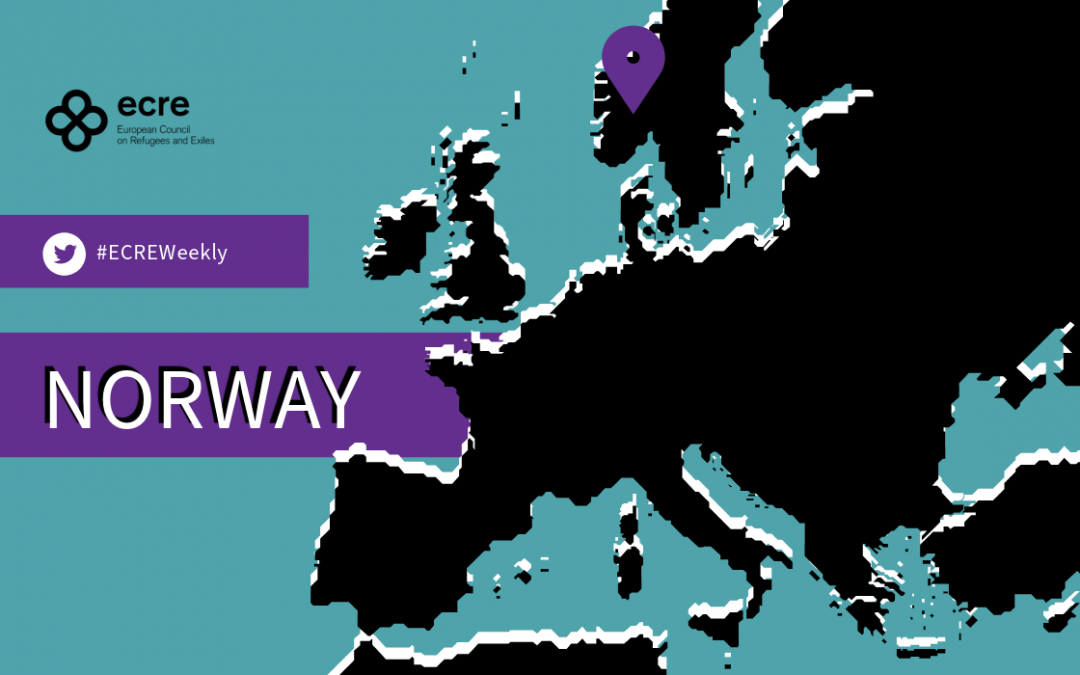- Norway is considering following Finland’s lead in building a fence along its border with Russia.
- The government has announced that it will no longer grant automatic asylum to all refugees from Ukraine.
- A group of NGOs have expressed their concerns about proposed changes to the immigration regulations on the deportation of parents with children.
Norway is considering following Finland’s lead in building a fence along its border with Russia. In an interview with the Norwegian state broadcaster (NRK) at the end of September, Minister of Justice and Public Security Emilie Enger Mehl said: “A border fence is very interesting not only because it can act as a deterrent, but also because it contains sensors and technology that allow you to detect if people are moving close to the border”. She added that the government was currently looking at “several measures”, including fencing, increasing the number of border staff and stepping up monitoring, and that it was ready to close the border at short notice if the “security” situation worsened. Enger Mehl visited Finland in the summer to learn more about how it closed its border with Russia in November 2023. The Finnish government has been building 200 kilometres of fences equipped with high-tech surveillance equipment in separate sections along the more than 1,300 km border. “It’s a measure that may become relevant on all or part of the border [between Norway and Russia]”, Enger Mehl said.
The government has announced that it will no longer grant automatic asylum to all refugees from Ukraine. As a result of the policy change, which the government has claimed is necessary due to the “strain on housing, healthcare and schools” resulting from a “high number” of refugees in some cities, asylum applicants from the six regions in the west of Ukraine will now have their applications considered on a case-by-case basis. Minister of Justice and Public Security Emilie Enger Mehl explained the rationale behind the move in a press conference on 27 September. “We can’t take in a disproportionate share of displaced people compared to similar countries, such as the Nordic countries,” she said. Enger Mehl also noted that a “rising share” of the Ukrainians who were seeking asylum in Norway were men, “including many of fighting age”, at a time when Ukraine was struggling to recruit soldiers.
A group of NGOs have expressed their concerns about proposed changes to the immigration regulations on the deportation of parents with children. In a joint letter to Minister of Justice and Public Security Emilie Enger Mehl on 1 October, ECRE member organisation the Norwegian Organisation for Asylum Seekers and Save the Children together with the United Nations Agency for Children (UNICEF) stated that the proposal, which was launched earlier in the year and underwent a public consultation, “does not sufficiently focus on the children’s rights and their needs” although they are nominally “the group that is the basis for this proposal”. The organisations are concerned that, in its current form, the proposal “will affect already vulnerable children throughout Norway” and result in “inconsistent practice and weakened legal certainty for the children concerned”. They also referred the minister to their respective submissions to the public consultation and invited her to engage in further dialogue with them.
Related articles
- EU EASTERN BORDERS: Major Event for People with Migrant Backgrounds in Estonia ― Council of Europe Urges Finland to ‘Reconsider’ New Migration Law ― Hungarian Prime Minister Repeats Threat to Send Migrants to Brussels ― Prosecutors in Latvia Request 18-Month Prison Sentence for Human Rights Activist ― NGO Sues Polish President Over Asylum Seeker Film Remarks ― Council of Europe Urges Poland to Respect Human Rights Obligations on Border with Belarus (October 2024)
- NORDIC REGION: Doctors in Finland Warn Against Healthcare Restrictions for Undocumented People ― Norway Proposes Reforms to Increase Refugee Employment ― Sweden Planning € 30,000 Allowance for Voluntary Returns― Chinese Activist Denied Asylum in Denmark Seeks Refuge in Sweden (September 2024)

